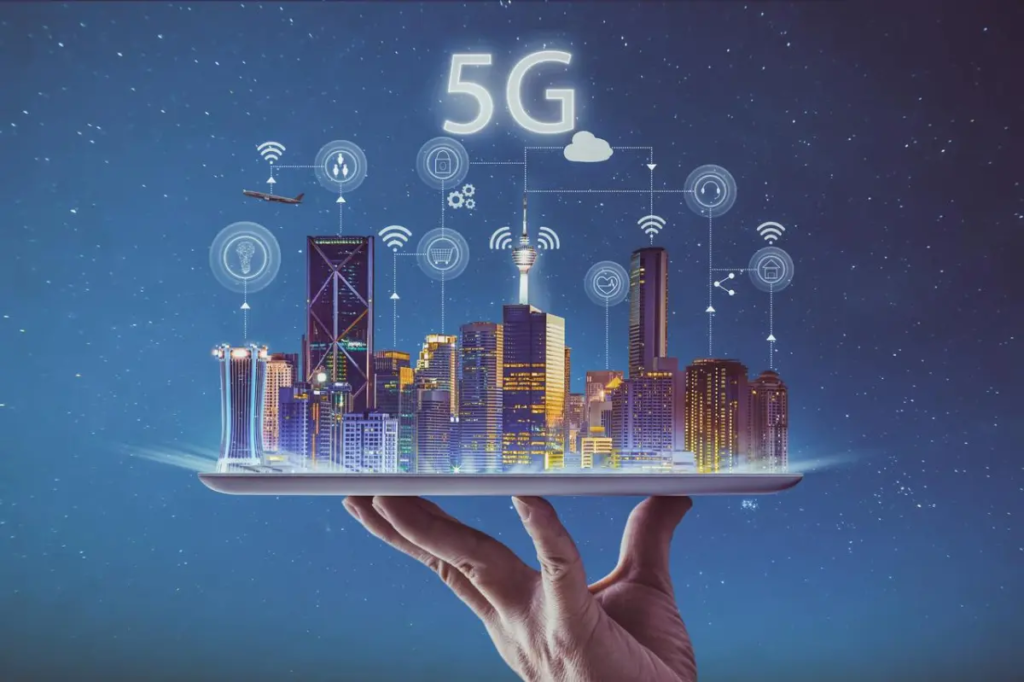5G technology represents the next generation of mobile communication networks, promising unprecedented speed, reliability, and connectivity to support a wide array of applications across industries and everyday life. As the successor to 4G LTE, 5G introduces transformative capabilities that enhance data transmission, enable real-time interactions, and foster innovation in telecommunications and beyond.

Understanding 5G Technology
5G is the fifth generation of cellular networks designed to deliver significantly faster data speeds, lower latency, and greater network capacity compared to its predecessors. Key features of 5G include:
- Enhanced Speed: 5G offers peak data rates up to 20 Gbps, enabling faster downloads, smoother streaming, and immersive experiences in gaming, virtual reality (VR), and augmented reality (AR).
- Low Latency: Reduced latency (response time) of around 1 millisecond in 5G networks supports real-time applications like autonomous vehicles, remote surgery, and industrial automation, where immediate responsiveness is critical.
- Increased Capacity: 5G networks accommodate more devices per square kilometer, supporting the growing number of connected devices in the Internet of Things (IoT) ecosystem and smart cities.
Applications of 5G Technology
- Enhanced Mobile Broadband: 5G enhances mobile internet experiences with faster downloads, seamless streaming in high-definition (HD) and ultra-high-definition (UHD), and lower latency for online gaming and multimedia applications.
- Internet of Things (IoT): 5G enables massive IoT deployments by connecting billions of devices and sensors, supporting smart homes, connected vehicles, and industrial IoT applications with reliable and responsive connectivity.
- Industry 4.0 and Automation: 5G facilitates digital transformation in industries by enabling real-time data analytics, remote monitoring, and control of manufacturing processes, improving efficiency and productivity.
- Smart Cities: 5G networks support smart city initiatives with connected infrastructure, real-time traffic management, environmental monitoring, and public safety applications that enhance urban living and sustainability.
Benefits of 5G Technology

Implementing 5G offers several benefits across sectors:
- Improved User Experience: Faster speeds, lower latency, and reliable connectivity enhance user experiences in mobile applications, streaming services, and interactive content.
- Innovation and Economic Growth: 5G drives innovation in emerging technologies such as autonomous vehicles, telemedicine, and augmented reality (AR), fostering economic growth and job creation in technology sectors.
- Efficient Network Operations: 5G networks optimize spectrum usage, reduce energy consumption, and support network slicing—a technique that partitions a single physical network into multiple virtual networks for specific applications or services.
Challenges and Considerations
Despite its advantages, 5G deployment faces challenges:
- Infrastructure Investment: Building and upgrading infrastructure for 5G networks—including small cells, fiber optics, and base stations—requires significant investment and collaboration among stakeholders.
- Security and Privacy: Securing 5G networks against cyber threats and protecting user data from breaches and privacy violations are critical considerations for network operators and service providers.
- Regulatory and Spectrum Issues: Spectrum allocation, regulatory frameworks, and international standards impact 5G deployment timelines and interoperability across global markets.
Future Outlook
The future of 5G technology is promising with ongoing advancements in network infrastructure, device compatibility, and use case development. Emerging trends such as network slicing, edge computing, and 5G-enabled innovations will expand 5G applications across industries and consumer markets.
Conclusion
In conclusion, 5G technology represents a significant leap forward in mobile communications, enabling faster speeds, lower latency, and enhanced connectivity for diverse applications in telecommunications, IoT, industry automation, and smart cities. By embracing 5G, businesses and societies can unlock new opportunities for innovation, economic growth, and societal advancement in a connected world. Strategic investments, regulatory support, and technological collaboration are essential to realizing the full potential of 5G and shaping the future of digital transformation and connectivity globally.



